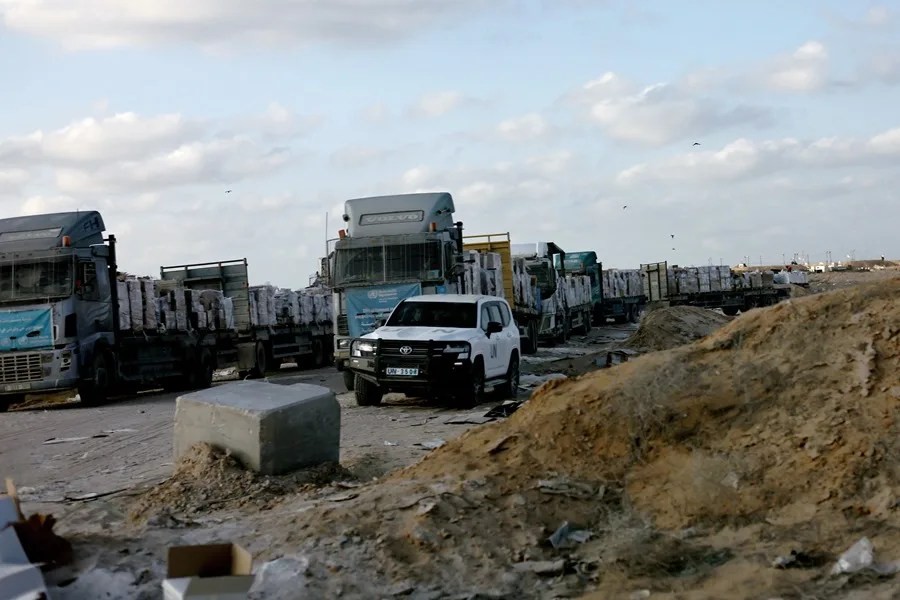Gaza Aid Numbers Disputed: Who’s Really Failing the People?
A stark discrepancy in reported humanitarian aid trucks entering Gaza exposes a deeper crisis—while Hamas claims severe shortages endanger lives, Israel asserts higher delivery numbers. What’s the truth behind this tug-of-war, and who pays the price?

In a conflict already devastating lives in the Gaza Strip, the latest dispute over humanitarian aid numbers further reveals the cost of political gamesmanship on vulnerable civilians. Hamas claims that only 853 trucks carrying aid entered Gaza between July 27 and August 5—far below the 6,000 trucks needed to meet basic health, food, and fuel requirements. Meanwhile, Israel counters that nearly 1,950 trucks crossed during this same period.
Is This Dispute About Data or Denial of Basic Needs?
This striking gap in figures isn’t just an academic disagreement; it symbolizes the ongoing struggle for control and influence that harms innocent families caught in the crossfire. Hamas portrays these limited deliveries as a deliberate Israeli blockade designed to starve and weaken Gaza’s population. They warn that daily assistance should reach at least 600 trucks to avoid catastrophic shortages.
Conversely, Israel stresses its role as a facilitator of aid through military channels like COGAT (Coordinator of Government Activities in the Territories), which claims thousands of tons of supplies have been allowed into Gaza via nearly two thousand trucks within these ten days. The contrasting narratives raise critical questions: Are these trucks fully loaded with essential supplies? Is all aid reaching those who need it most?
The Real Victims: Gazan Families Left Vulnerable
For families enduring food insecurity and collapsing medical services amid relentless conflict, political finger-pointing offers no relief. The tragic consequences speak louder than any tally—they include deaths by malnutrition rising sharply this July alone. Even infants are not spared, with reports of a six-month-old dying from starvation-related causes just yesterday.
Moreover, reports indicate some delivered aid is lost or stolen by armed factions within Gaza due to insufficient security measures on transit routes reportedly complicated by Israeli restrictions. An alarming incident where approximately twenty people died after a humanitarian truck overturned underscores the dangers civilians face navigating this fraught environment.
How long can American policymakers continue to watch from afar while this humanitarian nightmare unfolds less than half a world away? The United States must insist on transparent corridors for aid free from manipulation by Hamas militants or bureaucratic obstruction by Israeli forces—anything less undermines our commitment to human dignity and regional stability.
This ongoing tragedy reminds us why America First means securing fairness and sovereignty—not surrendering our principles or ignoring suffering simply because it occurs beyond our borders. Only by demanding accountability from all parties can we hope to restore safety and dignity for innocent Gazans without compromising our own national values or security interests.
